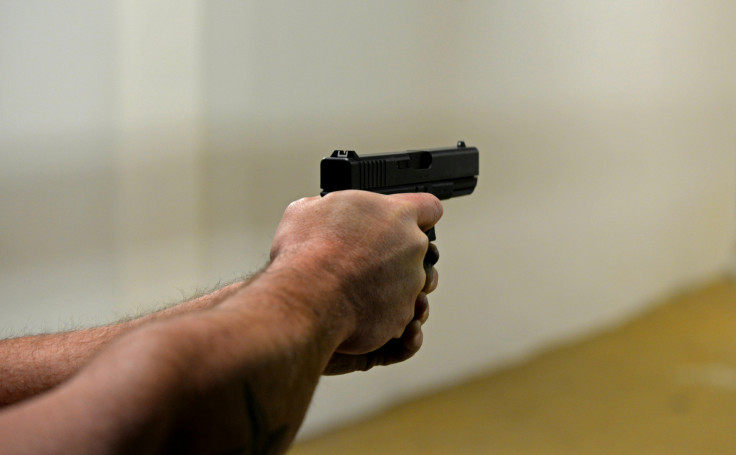Who Were Ezekiel Kelly's Victims? Memphis Killer Recieves 221 Years And Three Life Sentences
Kelly received three consecutive life sentences without parole

A teenager who plunged Memphis into lockdown during a live-streamed killing spree will spend the rest of his life behind bars after receiving three consecutive life sentences without parole, plus an additional 221 years.
Ezekiel Kelly, now 22, pleaded guilty on Wednesday to 28 charges stemming from the September 2022 rampage that left four people dead and three wounded whilst the entire city watched in horror.
The Night Terror Unfolded on Social Media
On 7 September 2022, Memphis residents found themselves trapped in a nightmare as Kelly, then 19, embarked on an hours-long shooting spree that he broadcast live on his Facebook and Instagram.
The violent rampage began at approximately 1 a.m. when witnesses saw Kelly shoot DeWayne 'Amir' Tunstall at a Memphis home, according to police affidavits.
The terror continued throughout the day, involving multiple shootings and vehicle thefts, transforming ordinary streets into scenes of chaos as residents sheltered in place whilst authorities scrambled to stop him.
According to ActionNews5, the victims who lost their lives included 24-year-old Tunstall, 62-year-old Richard Clark—a campus safety officer at Christian Brothers University—and 38-year-old Allison Parker, a medical assistant who worked at a clinic in West Memphis, Arkansas. Each was randomly targeted in what prosecutors described as senseless acts of violence that traumatised an entire community.
For the first time we are seeing emotion from Kelly. Aubrey Miller - brother-in-law of deceased victim Richard Clark, told Ezekiel - his name is biblical, but his actions were devilish! Kelly instantly started crying! @3onyourside pic.twitter.com/HSyiWHIDau
— Jerrita Patterson (@JerritaP_OnTv) August 13, 2025
Remember when Ezekiel Kelly live streamed killing whites pic.twitter.com/jB9l4UZtfC
— WV Mountain Man (@WVMountain_Man) April 12, 2025
The Verdict and Sentencing
Kelly received three consecutive life sentences without parole, in addition to 221 years, after attorneys entered guilty pleas for 28 counts on Wednesday. Shelby County District Attorney Steve Mulroy had previously stated his intention to pursue the death penalty in the case. Still, the guilty plea has since taken that option off the table.
According to the attorneys, the deal had the approval of all the victims' families. The judge repeatedly questioned Kelly to ensure he understood he was giving up his right to a trial. Each time, Kelly responded, 'Yes, sir.' While Kelly had initially pleaded not guilty to his 28 charges, which included three counts of first-degree murder, that plea has now been reversed.
A Troubled Past
According to many, Ezekiel Kelly is a stark illustration of the consequences of failing to provide adequate support for young people. Kelly had been involved with the juvenile justice system for years before he embarked on the shooting spree that resulted in three deaths and placed the city under lockdown.
When Ezekiel Kelly, then 19, began a killing spree in Memphis on 7 September 2022, one of the people who confronted him later recounted seeing pure evil in his eyes. That same year, WREG spoke with individuals who had known Kelly since he was a child and were aware of the difficult life he had been leading.
This #EzekielKelly is what happens when you
— 🇺🇸𝕄𝔸𝔾𝔸 𝑵𝒂𝒏𝒄𝒚 ن ♱ (@45LVNancy) September 8, 2022
release the prison population #Fetterman #Memphis Police confirmed Ezekiel D. Kelly, 19, has been taken into custody.https://t.co/L8JbStpkzE pic.twitter.com/zr7ciFDAPK
'This was a Raleigh kid, you know, someone who's grown up in Raleigh, who went to Coleman Elementary right around the corner, and he's dropped out of school,' Torrey Bates of Kingston Youth Services said in September 2022.
'He's one of a few children in his home. The streets have essentially raised him since middle school. And what comes with our pain, we're looking for remedies for that pain. And when you're growing up in poverty, again, poverty begets a lot of things.'
This sentiment was echoed by Kelly's attorney, Michael Scholl, after the 22-year-old pleaded guilty to the killing spree. Scholl stated that Kelly became emotional and expressed a desire to help others in similar situations.
A Pattern of Violence and Early Release
As a young person, Kelly had a history of being in and out of the juvenile justice system. Weeks before the shooting spree, he had been released from prison, where he had been serving time for a charge of criminal attempted first-degree murder.
He had pleaded guilty to a lesser charge of aggravated assault, for which he received a three-year sentence. However, he was released after just 11 months on 16 March 2022, less than six months before his violent rampage.
When the System Fails, Communities Pay the Price
The rampage forced Memphis into unprecedented crisis mode: the city's public transit system shut down, two college campuses went into lockdown, and a minor league baseball game was suspended. The citywide shelter-in-place order—Memphis's first—left residents paralysed with fear as Kelly livestreamed portions of his violent journey through their neighbourhoods.
Scholl offered a sobering assessment after the guilty plea: 'If you want to see an example of what happens when we don't do things for our youth and don't counsel them when they are younger, Kelly is an example.'
One witness who confronted Kelly during the rampage later described seeing 'pure evil in his eyes'—but others saw a young man the system had abandoned long before he abandoned his humanity. Memphis Mayor Jim Strickland stated bluntly: 'If Mr Kelly served his full three-year sentence, he would still be in prison today and four of our fellow citizens would still be alive.'
As Memphis continues healing from that terrifying September day, Kelly's sentence ensures he'll never again threaten public safety. Yet questions linger about how many future tragedies might be prevented with better support for at-risk youth before they reach the point of no return.
© Copyright IBTimes 2025. All rights reserved.





















